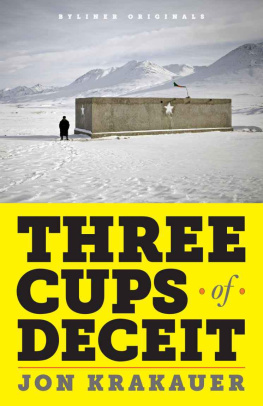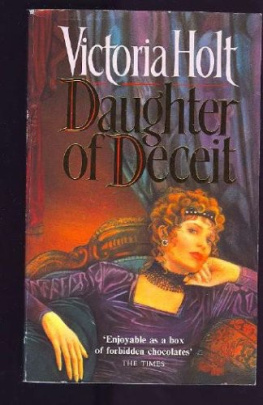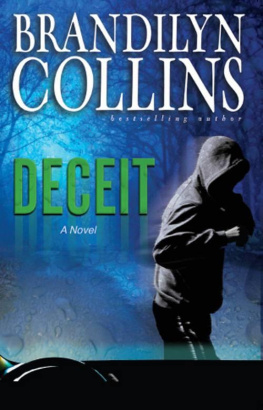DECEIT
THE LIE OF THE LAW
Related Titles
Arbitration Law
by Robert Merkin
(looseleaf)
Introduction to Arbitration
by Harold Crowter
(1998)
So you Really Want to be an Arbitrator
by D. Mark Cato
(1999)
Arbitration Practice and Procedure:
Interlocutory and Hearing Problems
Third edition
by D. Mark Cato
(2002)
International Arbitration: A Handbook
Third edition
by Philip Capper
(2004)
Arbitration Law
by Robert Merkin
(2004)
Arbitration Law Handbook
by Ben Horn and Roger Hopkins
(2007)
A Practical Guide to International Arbitration in London
by Hilary Heilbron QC
(2008)
Arbitration Act 1996
Fourth edition
by Robert Merkin and Louis Flannery
(2008)
DECEIT
THE LIE OF THE LAW
By
PETER MACDONALD EGGERS
LL.B.(Syd.), LL.M.(Cantab.)
Barrister of the Middle Temple,
7 Kings Bench Walk
Visiting Lecturer, University College London

Informa Law
Mortimer House
3741 Mortimer Street
London W1T 3JH
An Informa business
Peter MacDonald Eggers 2009
British Library Cataloguing in Publication Data
A catalogue record for this book
is available from the
British Library
ISBN 9781843117959
All rights reserved. No part of this publication may be reproduced, stored in a retrieval system, or transmitted, in any form or by any means, electronic, mechanical, photocopying, recording or otherwise, without the prior written permission of Informa Law.
Whilst every effort has been made to ensure that the information contained in this book is correct, neither the editors and contributors nor Informa Law can accept any responsibility for any errors or omissions or for any consequences resulting therefrom.
For Sarah, Harriet, Sam and Madeleine
BY THE RIGHT HONOURABLE LORD JUSTICE RIX
Peter MacDonald Eggers has turned his incisive pen from good faith (Good Faith and Insurance Contracts, First Edition 1998; Second Edition, 2004) to deceit, from an obligation to tell the truth (or at any rate to make a fair presentation) to the legal consequences of lying. He describes deceit as this emotive tort and refers to its medicinal flavour. He is concerned by the puritanical timbre with which judges, once speaking or even still speaking in Victorian tones, have indiscriminately lashed the perpetrators of all-knowing untruths. He describes two basic shortcomings of the law as its tendency towards moral indignation and its imposition of harshly extensive penalties. With the assistance of a detailed examination of the morality of lying, which is as much philosophy or jurisprudence as law, he analyses the complexity of a world in which we lie for all kinds of reasons, not only to deceive, and sometimes for benign ends. His well-argued prescription is for the law to restrain its opprobrium for the really deserving cases of deliberate dishonesty and for a more careful delineation of remedies to match the seriousness of the case. He observes that such seriousness is as much a matter of impact as of cause.
This excellent book is based on a meticulous knowledge of the cases. It is also timely as there has, it seems, recently been a great upsurge of claims based in deceit. I do not know why that should be, especially in an era when negligent and even entirely innocent misrepresentations have their remedies and when statute and presently binding authority in respect of negligent misrepresentation are very helpful to the claimant.
It may be that there are elements about the tort of deceit, perhaps matters of practice rather than principle, which ameliorate the authors criticisms. Thus there has, at any rate in the past, been a reluctance to plead fraud, and the pleader is put under a strict duty to require proper evidence on which to found the pleading. The representation in question has to be clearly identified. The dishonesty has to be properly particularised and proved. Although the standard of proof remains the civil standard of the balance of probabilities, jurisprudence warns, in one way or the other, of the special importance of sufficient proof of dishonesty. Judges may be deceived by false evidence and misled by good or poor performances in the witness box, as the author rightly observes, but judges are conscious of those problems and therefore do not lightly make the findings necessary for fraud. Jurisprudence also emphasises the critical importance of the element of dishonesty, as Lord Herschell said in the leading case of Derry v. Peek (1889) 14 App Cas 337 at 374, there must be proof of fraud and nothing short of that will suffice. That, as Lord Herschell went on to say, depends on knowledge: the law of course has struggled, as have all philosophers, with the concept of knowledge, but Devlin, J has emphasised, in Armstrong v. Strain [1951] 1 TLR 856 at 871, that there must be conscious knowledge of falsity. It might be said: if after all that, there is a finding of fraud, judges and others might be entitled to be offended.
Fraud, of course, may arise in circumstances outside the tort of deceit, for instance in the scuttling of a ship and the making of a fraudulent insurance claim. But the second essential aspect of the tort of deceit is that the victim must have been induced by the fraud to have changed his position, typically to have entered into a contract in reliance on the false representation. Thus, the interest of the law is in the harm caused. The critical importance of inducement (as well as of the element of dishonesty) goes back at least to the great case of Attwood v. Small (1838) 6 Cl & F 232 (HL), which the author appropriately enough first mentions as early as footnote 11 of his first chapter. I remember reading that case as a young barrister. I sought it out in Middle Temples library. What a pleasurable hour I there spent with Lord Broughams wonderful speech. The case involved the sale of an estate containing coal mines for the then enormous price of (originally) 600,000. The question was whether the sellers had been fraudulent. The buyers had performed what is now called due diligence and on completion had worked the mines for a number of months, before discovering that the rich seams of coal which had been anticipated had evaporated. They sought rescission. The Court of Exchequer had given judgment in fraud against the sellers. The House of Lords reversed that decision on two grounds: first, because there was no proof of fraud (Lords Lyndhurst and Wynford dissenting) and secondly, because the purchasers had not relied on what they had been told but had made their own investigations.
The case in their Lordships House was fought for 16 days in the session of 1835 and for a further 30 days in the session of 1836. Lord Brougham was absent through illness for that latter session. The matter came on for judgment on 22 March 1838. The Earl of Devon spoke first. It then fell to Lord Brougham to speak second, but he claimed the indulgence of their Lordships if others went before him, as, owing to his absence through illness, he was uncertain whether he wanted to address the House at all (at 346/7). Lord Cottenham, LC spoke next, and then Lord Lyndhurst (who had given judgment against the appellants in the court below). Late in the day Lord Brougham asked for an adjournment since, given Lord Lyndhursts opinion in favour of a finding of fraud, the House was now divided and he was resolved himself to speak. Lord Lyndhursts very powerful statement had certainly somewhat unsettled my opinion on this subject and he wished for a few days (until the following Monday) to look more at large into the case (at 436/7). When the House convened again on 26 March 1838, Lord Brougham gave a magnificent speech in favour of reversal of the Exchequer Chamber. His opening paragraphs are highly interesting, even entertaining. He said (at 437/440):
Next page
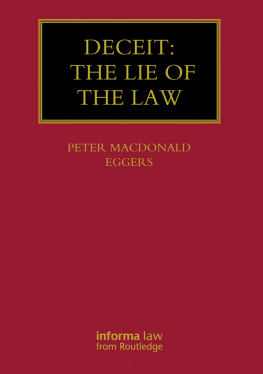


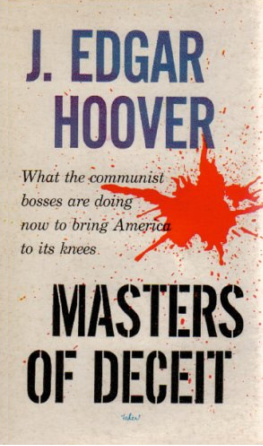
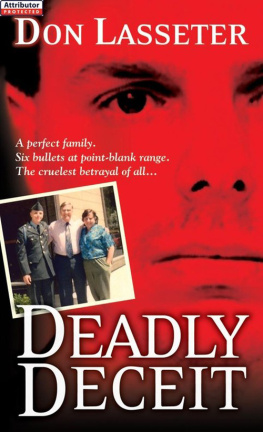
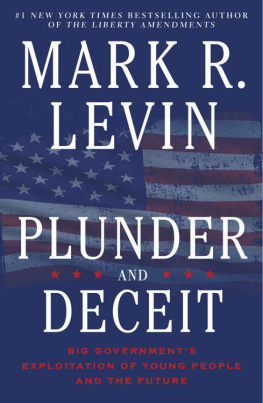
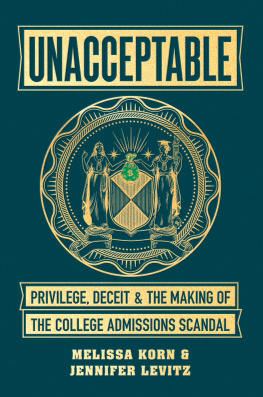
![Stinnett - Day of deceit : the truth about FDR and Pearl Harbor ; [with a new afterword]](/uploads/posts/book/102803/thumbs/stinnett-day-of-deceit-the-truth-about-fdr-and.jpg)
